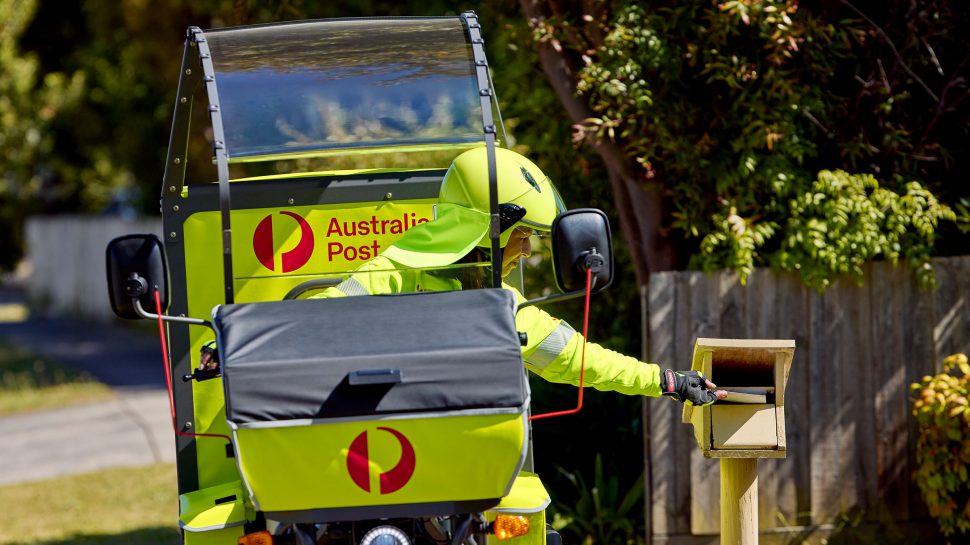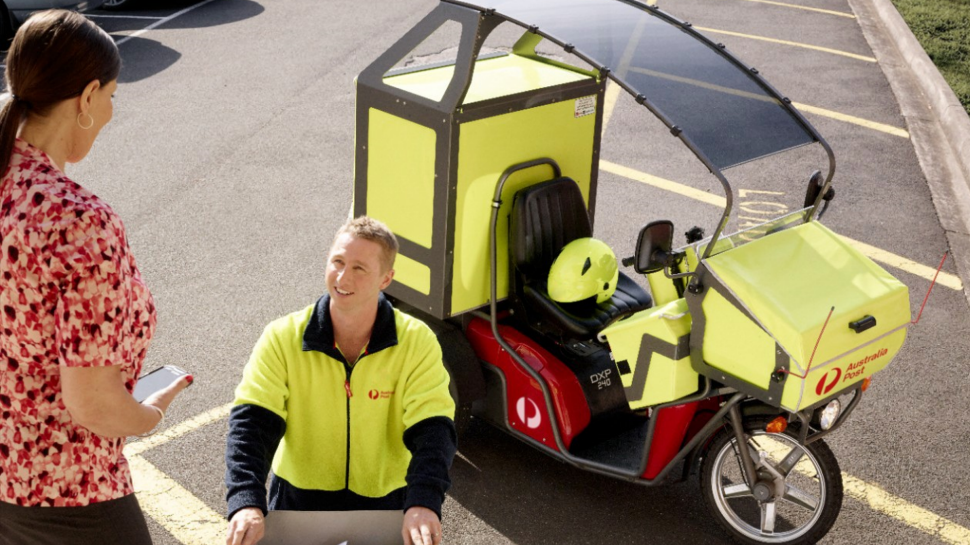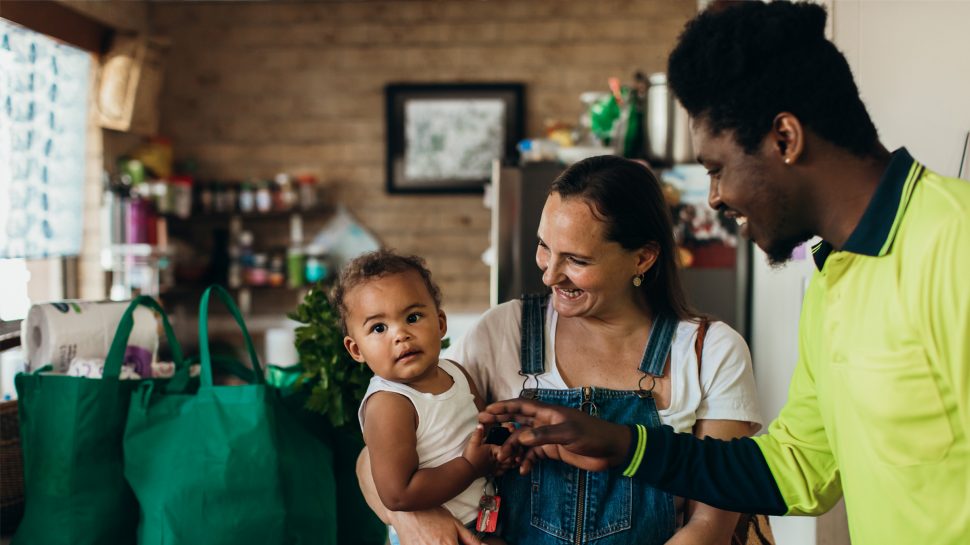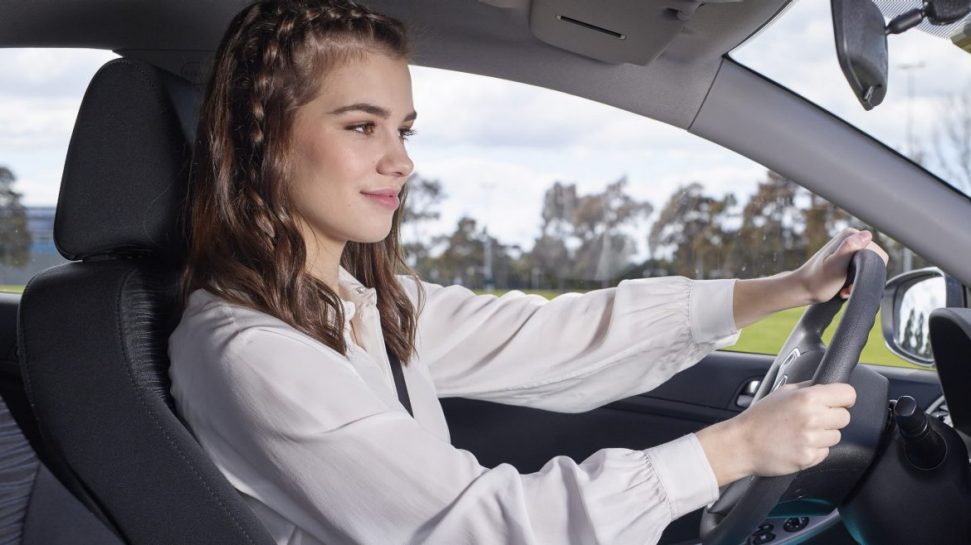Using our transport network to drive towards a sustainable future
Australia Post is a finalist on the 2023 Australian Financial Review (AFR) Sustainability Leaders list for the second year running. Here are the sustainability initiatives that got us there.

Australia Post has a long history in the sustainability space.
We took our first step towards building a sustainable future for Australians in 1874 when we appointed our first Indigenous postmistress, Mary Ellen Cuper.
Since then, we’ve been delivering bigger and bolder sustainability initiatives across three key areas – people, planet and prosperity.
This year, we’ve been named a finalist for the 2023 Australian Financial Review (AFR) Sustainability Leaders list for the second year running.
“As an iconic Australian business, we have a responsibility to drive change for a better, safer and more sustainable future,” says Tanny Mangos, Executive General Manager of Community Sustainability & Stakeholder Engagement at Australia Post.
The 2023 AFR Sustainability Awards called for an innovation that demonstrates how Australian organisations tackled a sustainability challenge in a way that benefited the environment, created community value and delivered business efficiencies.
In 2022, Australia Post was lauded for the way we managed our carbon emissions during a period of rapid growth through property efficiency programs and on-going investment in electric vehicles.
“This year we focused on how we leveraged our extensive network operations and fleet to lower emissions, increase circularity and deliver real benefits to the community,” says Tanny.
Reducing, reusing and recycling at facilities
A circular economy aims to keep products and materials in use – or circulating – by viewing them as valuable resources and keeping them out of landfill.
Australia Post is continually innovating to make circularity part of our operations at scale by looking at how to use less resources and more material reuse in order to generate less waste.
One example is our procurement of 110,000 metal Unit Loading Devices (ULDs) - a more durable, longer-lasting, reusable alternative to timber pallets that only have a 90-day life span.
Tanny says this investment has reaped significant environmental benefits like reduced landfill and disposal costs of broken pallets, and a significant reduction in single-use plastic pallet wrap.
ULDs also optimise our truck fleet as they can be stacked two high. This means fewer trips and lower fuel consumption and emissions.
“Our customers love ULDS too because it helps them be more sustainable and reduces the costs of pallet and plastic wrap,” says Tanny. “Metal ULDs have over a 10-year lifespan so we see increased benefits over time.”
Positively impacting communities
Every delivery is an opportunity for us to connect with communities across metropolitan, regional and rural Australia.
We’ve expanded the impact of our community programs by forming strategic partnerships with not-for-profit organisations that benefit from the reach of our extensive transport network.
“Our partnership with the Indigenous Literacy Foundation helps deliver culturally appropriate books to children in remote First Nations communities,” says Tanny.
Since 2020, we’ve delivered over 300,000 books to 356 remote First Nations communities across the country.
Lowering emissions with Australia’s largest fleet of electric delivery vehicles (eDVs)
Australia Post has spent the past three years expanding our electric delivery vehicle (eDV) fleet to a total of over 4,635 vehicles. That’s over 30 per cent of our fleet.
We’re officially Australia’s largest eDV operator – and we’re adding 500 more vehicles this year.
Each three-wheel eDV replaces a motorbike which results in less fuel usage. This equates to over 2,000 tonnes of carbon emissions per year. And it brings us closer to our target of Net Zero emissions by 2050.
Then there's reduced air pollution and noise pollution. Our eDVs are also safer for our team members and improve productivity and efficiency of delivery rounds compared to our vans.
Delivering for Australians involves more than delivering parcels. It’s about delivering a better tomorrow so people and the planet can prosper.
How we're building a sustainable future
How we're building a sustainable future
Our 2025 Sustainability Roadmap outlines our plan to deliver a sustainable future for all Australians. One that meets the needs of the present without compromising the ability of future generations to meet theirs.



